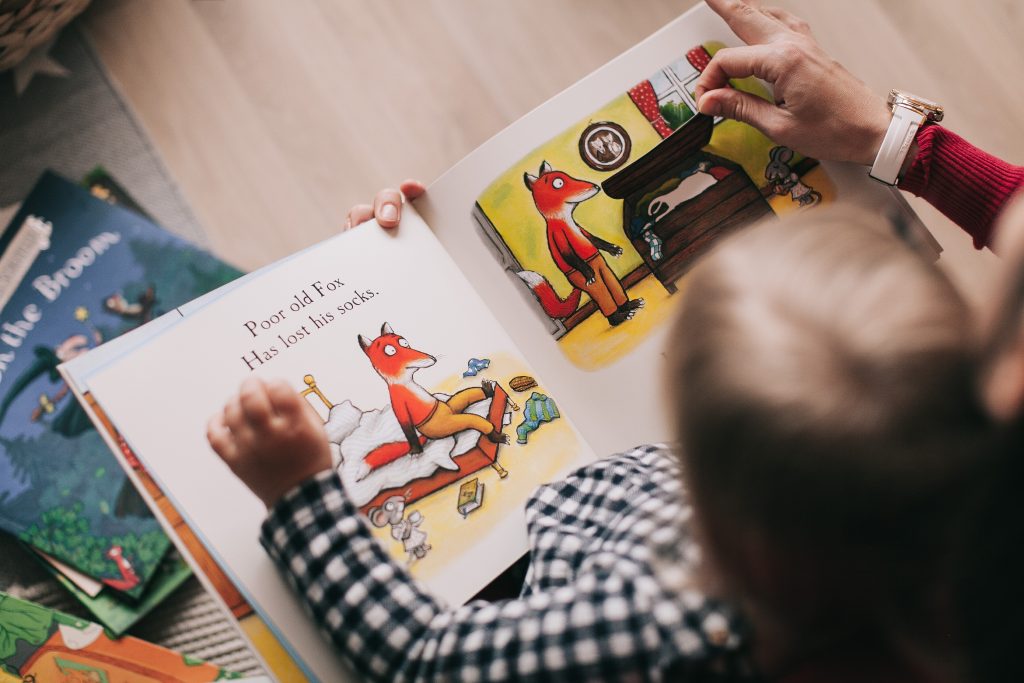
Literacy in the early years is crucial to building a foundation for your child’s development. Studies have found that there is a direct link between the number of words a baby hears and their language skills.
The good news is that you can begin on the road to developing your child’s literary skills from birth. Reading exposes children to words that they may not otherwise hear in everyday life, extends their vocabulary and improves their thinking and problem solving skills. Children whose parents read to them every day are exposing them to an additional 78,000 words a year. (From a 2019 study published in the Journal of Developmental and Behavioral Pediatrics.)
Reading in the early years also stimulates babies senses, building on listening and memory skills and those all important word associations which help children to recognize an apple as an apple for example.
And it’s not just reading that’s important in developing literacy skills. Communicating and rhyming are also key factors.
Communicating involves speaking, listening and understanding so explaining what you’re doing is a great way to begin. For example, ‘Mummy is putting your socks on your feet to keep them warm’.
Rhyming helps children understand sounds and the connection between words, which is why so many children’s books are written in rhyme or have rhyming elements. Think Dr Seuss, The Very Cranky Bear series, and Hairy McLairy.
Tips for Developing Literacy in the Early Years
- Read to your baby from birth (it doesn’t matter what you read to begin with, so read them the paper, whatever book you’re reading at the moment, a magazine etc.)
- Encourage your child’s imagination by sharing stories. Ask leading questions e.g. what has dolly/teddy/puppy been doing today?
- Rhyming helps to understand sounds so get those Dr Suess books at the ready
- Read books, books and more books with your child
- Incorporate reading into every day so they see it as an enjoyable activity that you do together
- From birth, talk to baby about the everyday tasks that you’re doing.
